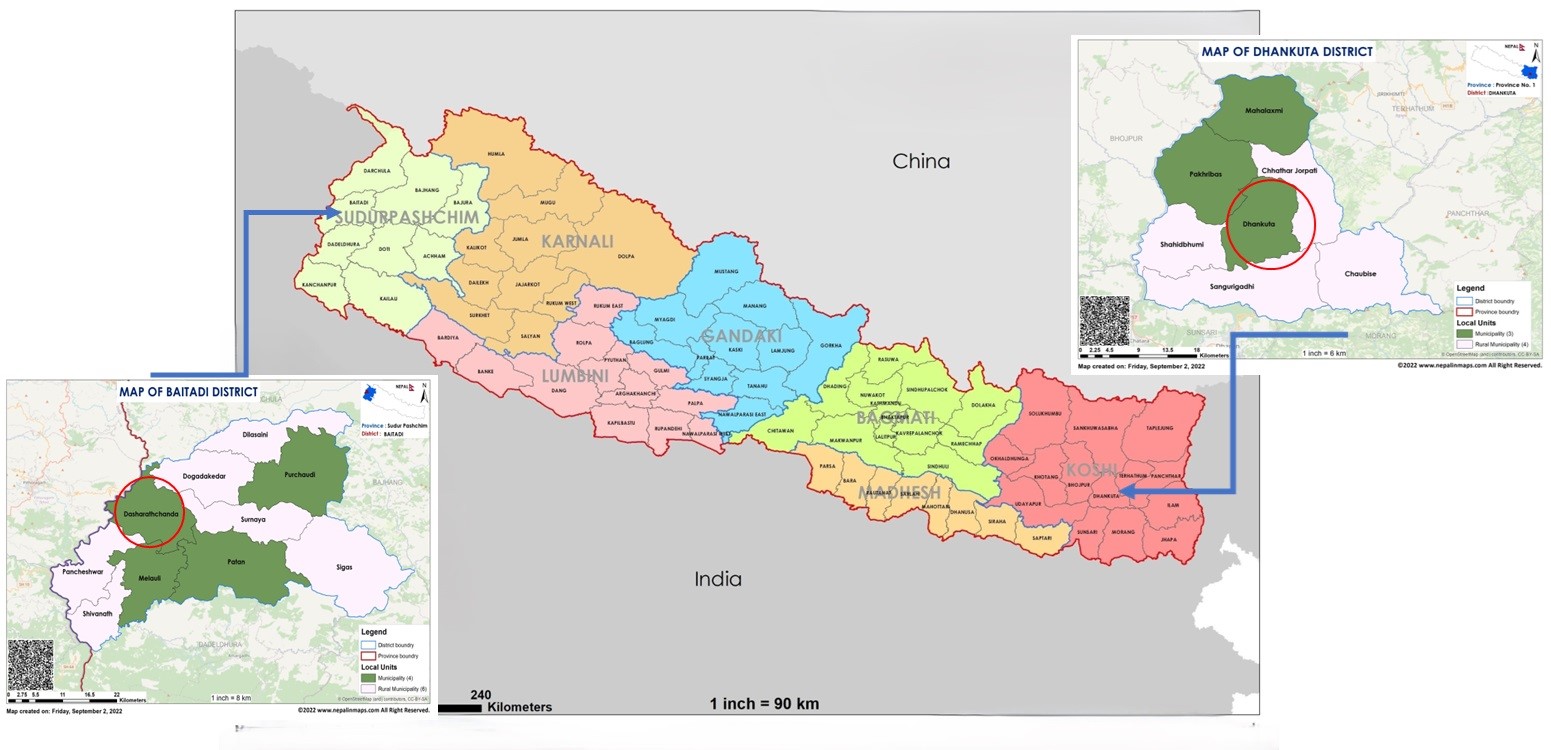Found 3 results
Article
10 September 2024Payment or Incentive: Public Perception on Payment for Ecosystem Services at the Time of Climate Change in Nepal
Understanding community preferences and perceptions of ecosystem services is needed to generate local-level financing through Payment for Ecosystem Services. Local-level financing is crucial for both ecosystem management and also helpful in climate change adaptation actions. This research focuses on community perceptions of payment for ecosystem schemes and their preferences to generate local-level financing. The study was carried out in Dhankuta and Dasarath Chand municipalities, representing Koshi and Sudur Paschim provinces of Nepal. We applied social science research methods using focus group discussions, key informant interviews, and community surveys. The study indicates that community-perceived payment for ecosystem service schemes can be instrumental in generating local financing, and their preference is more towards in-kind or project-based payment mechanisms. While climate change is largely impacting ecosystems and community livelihoods, project-based payment mechanisms could be more effective than cash payments. However, this needs a strong institutional mechanism within the municipal government where such in-kind or project-based support could be mobilized through a multisectoral approach.

Article
29 August 2024Incentive for Ecosystem Services: Governance and Policy Coherence in Nepal
This research highlights the governance of landscape and policy coherence to ensure a sustainable supply of ecosystem services through incentives for ecosystem schemes at the municipal level in Nepal. The study was carried out in Dhankuta and Dasarath Chand municipalities representing Nepal’s Koshi and Sudur Paschim provinces. Six aggregate governance indicators adopted by the World Bank Group were assessed through interviews with primary stakeholders of selected landscapes in two municipalities, followed by Key Informant Interviews. The study indicates that implementation of the Incentive for Ecosystem service scheme is feasible, creating multi-stakeholder institutions at the local level. However, there are several governance challenges to ensure its success. In particular, incentives for ecosystem schemes must be part of local government planning, where multisectoral coordination and collaboration are essential. While municipal authorities have constitutional jurisdictions to initiate such schemes, they lack the human resources to understand ecosystem management for a sustainable supply of ecosystem services. Therefore, landscape governance is essential to make incentive schemes successful and ensure transparency and equitable benefits among ecosystem service providers.

Review
01 April 2024Desperately Seeking Sustainable Human Well-Being: A Review of Indicators, Concepts, and Methods
Evaluating progress in human development and well-being is imperative for policymakers to assess the impact of their policies. Traditional measurement methods focus mostly on economic growth and socio-economic objectives, often neglecting vital components of the natural environment, particularly the ecological determinants essential for the sustainability of human well-being. The tension between sustainability and development becomes apparent as the recognition of the dependence of human well-being on the natural environment and ecosystem services is crucial for safeguarding the environment for present and future generations. This highlights the necessity for indicators that capture the intricate relationship between human well-being and environmental changes while addressing the challenges posed by the tension between sustainable practices and traditional development models. This paper presents a literature review examining the domains, dimensions, and indicators related to the sustainability of human well-being regarding economic, social, and natural environments. Emphasizing the multidimensional nature, this paper highlights the drawbacks of relying solely on socioeconomic indicators for assessment. The review explores diverse concepts and methodologies proposed to evaluate the components and multidimensional factors influencing the sustainability of human well-being. Ultimately it offers a holistic understanding serving as a foundation for further research and policy development.
